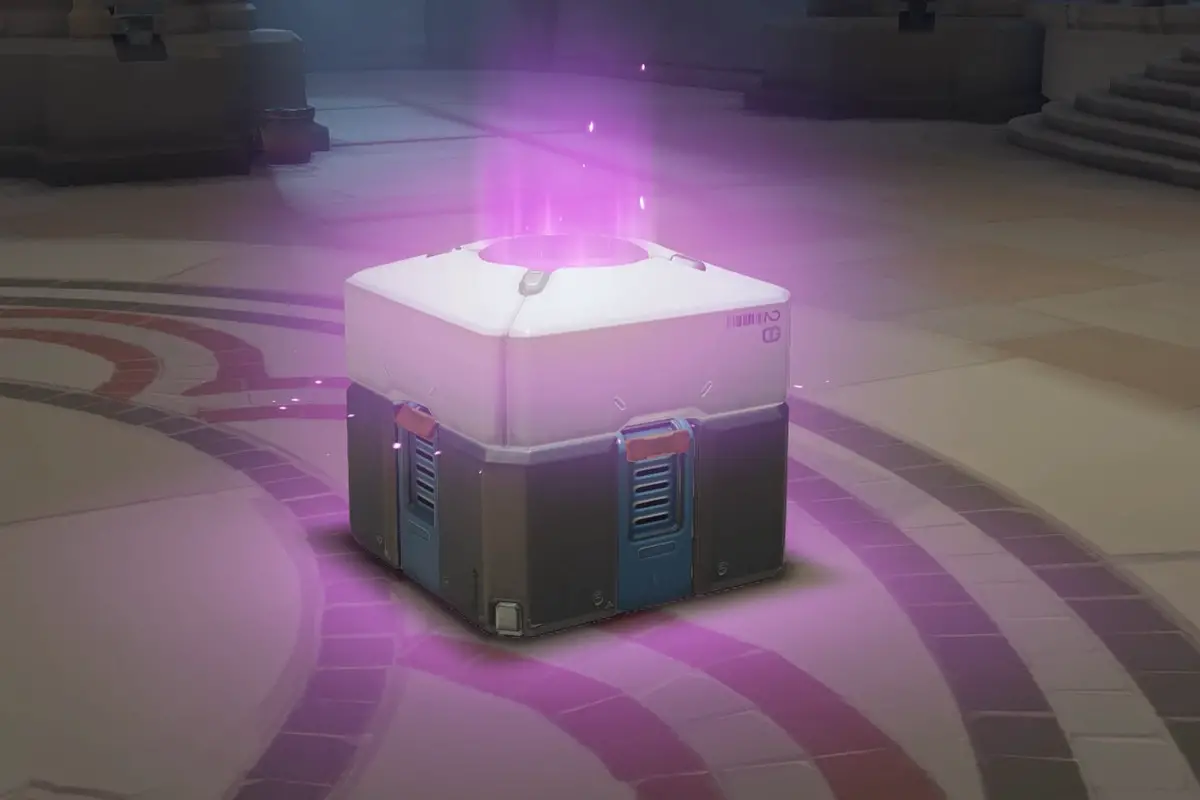On Aug. 27, “Overwatch” community manager Vaneras posted a statement on the “Overwatch” forum detailing the Belgian government’s decision to outlaw a controversial fixture of the game known as loot boxes. Yes, according to the new law, in-game loot boxes count as gambling and can no longer be sold for real money. Not directly, at least, but more on that later.
Now that Belgium has joined China and Korea in the fight to regulate loot boxes, maybe now it’s time the rest of the world gets on board. In case you’re not familiar with the video game feature or simply never fully understood the argument against them being in games, I’ll break it down for you.
They’re Predatory
Loot boxes have risen in prominence within the last several years and are now staple features in a number of popular games. The boxes, in general, charge the player in-game currency for the chance to win a randomized prize. Because many games allow players to purchase in-game currency with real money, users who fall into the temptation of repeatedly rolling the dice with loot boxes can end up spending large amounts of very real money on them. That’s where their illegality figures in.
At some point in history, people realized that gambling can be addictive and it’s probably best that only adults should be allowed to do it. To allow kids to gamble is messed up on a few levels. For one, it is likely they will have little money to begin with: Even if a kid played at the dollar tables, it is unlikely they will go far with a five dollar bill.
Then, you have to consider that the money probably comes from their parents, and even if the kid came in with a sizable allowance, chances are the parents will make a fuss and want their money back. Not to mention a minor might not fully understand the rules of the game they’re playing.
As an adult, playing a game you don’t fully understand is a calculated risk you should be able to take. As a child, trying things you don’t understand is your way of life, so it’s in everyone’s best interest to forbid minors from legally gambling.
Why then is gambling present in video games that minors have easy access to? When it comes to casinos, even a kid can understand that you play for and with money. That is why casino games come in many forms, because the main objective is for you to win more money than you started with. The main objective is different in video games.
In the case of “Overwatch,” your main goal is to work with your team to capture/secure an objective. All the cosmetics in the game exist as collectibles that provide an incentive for you to keep playing the game, even if the main objective no longer interests you. It’s part of the grind all gamers know and expect.
However, what used to be content unlocked by just playing the game now often takes the form of loot boxes. Almost every game with loot boxes allows players to obtain them through gameplay alone, but constructs the way to obtain them in a way that makes buying boxes outright more appealing.
In “Overwatch”, you can earn loot boxes by leveling up or winning games in the Arcade modes. The issue is that leveling up becomes rather time consuming once a player surpasses level 100. The Arcade also only allows players to win up to 3 loot boxes per week, so it isn’t a viable alternative to buying the boxes. “Overwatch” also has in-game currency that can only be obtained by getting duplicate items or coin drops in the loot boxes.

So, no matter how you cut it, there’s no direct way for the player to get what they want through pure gameplay. As an adult, even I felt the pressure of loot boxes and have succumbed to it, so expecting children or adults with a gambling addiction not to buy these boxes in large quantities is foolish at best.
They Detract from the Gameplay
There is nothing wrong with playing a video game with the sole intent of unlocking a particular item. There have been plenty of times where I booted up a game planning to devote a couple hours to obtaining an unlockable I’ve had my eye on. Some games are more grindy than others and sometimes the necessary tasks are stupidly tedious, but at least you can get exactly what you want for free.
The introduction of loot boxes in video games changed this process drastically. Games like “Overwatch” increase the amount of grinding required while offering little chance of getting exactly what you want. Most people get joy from collecting as much as they can in a game, and gambling can prevent players from getting what they want in a timely matter.
This issue is exacerbated by timed/seasonal events. You don’t need to be a hardcore completionist to be irritated by having content locked away for most of the year — and that’s not even the worst case of loot boxes.
Mobile games are mostly associated with pay-to-win, but AAA games have dabbled in this a few times as well. “Battlefield 1” and “Call of Duty: Black Ops 3” both have content locked within loot boxes, some of which was weapons. Of course, not every weapon in those boxes was great, but the very idea that some players can get killed by a weapon they have little to no chance of obtaining is absurd. Oh, and unfair, if that wasn’t made clear.
There Are Better Ways for Publishers to Make Money
Some gamers believe that game publishers need to put loot boxes in their games to make money to support the game after launch. There a few problems with that logic, though, the first being that it doesn’t have to be this way.
There are games that don’t rely on loot boxes, and instead just make additional content that is enticing enough to attract buyers and make profit. “The Witcher 3” is one of the few games in recent memory to use this method (“Horizon Zero Dawn” is another that sticks out to me).
A less ethical method is the approach “Rainbow Six: Siege” has taken. The game has loot boxes as well as content exclusive to them, but they are all cosmetic. Most items can be purchased with one of the two currencies in the game, one of which (R6 credits) can only be bought with real money and the other (Renown) can be earned by playing the game. Although the pricing of some items seems a bit too high and some content can only be bought with R6 credits, for the most part, players can choose exactly what they want.
If loot boxes must be in the game (questionable, but I’m sure the stockholders disagree), publishers use the workaround that the Chinese laws allow when they decided to regulate loot boxes: They sell the in-game currency with loot boxes as a “bonus.”
Alongside this, developers must display their odds of obtaining rare and legendary items. I’m not a fan of loot boxes in games, because they never enhance the experience of the gamer. That said, if players must get screwed out of our money, at least tell us the odds.

















